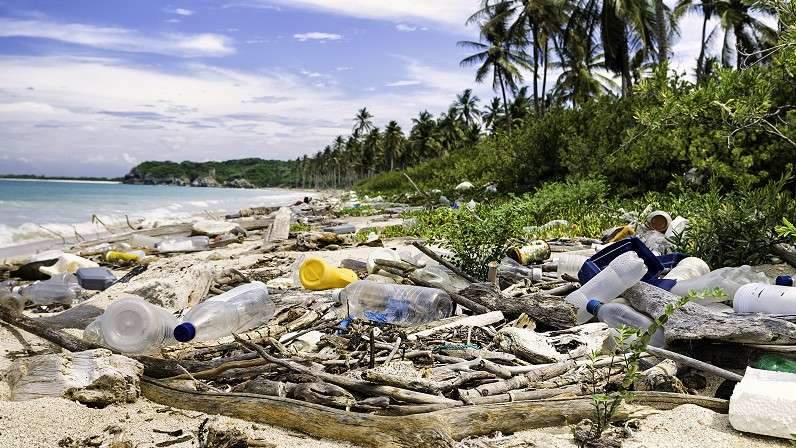The Centre for Process Innovation (CPI), a science and technology innovation center based in the UK, in collaboration with industry partners is working on a project to reduce plastic pollution by accelerating the development of eco-friendly food packaging.

Image: The increase in plastic waste on the world's beaches is having a significant impact on the environment and wildlife. Photo: Courtesy of Centre for Process Innovation Limited.
The project is expected to develop advanced packaging solutions that continue to extend the shelf-life of food products, such as meats and salads. The packaging will be made from biodegradable materials designed to degrade in a natural environment, said CPI.
Leveraging its polymer chemistry research and materials processing and characterization capability, CPI is supporting the development of alternatives to fossil-based polymers that are commonly used.
CPI said that the fossil-based polymers cannot be consumed by nature and have a negative impact on the natural environment by polluting land and seas.
Plastic packaging offers various benefits like reducing food waste and worldwide distribution. However, the mismanagement of plastic waste has resulted in increasing global pollution, especially in the oceans.
The project secured financing from Innovate UK program, Plastics Innovation: Towards Zero Waste, which promotes the development of new polymers, processes and recycling regimes.
CPI is partnering with iPac Packaging Innovations, Avondale Foods, Cranswick and their customers for using formulation and industrial biotechnology capability to develop new biodegradable packaging with better end-of-life options like composting and anaerobic digestion.
CPI business manager Dan Noakes said: “We need to adopt new thinking if we are to overcome the pressing issue of plastics-persistence in our natural environment.
“This project tackles the issue head-on. We hope to positively impact the sustainability of the food industry and influence environmentally-conscious purchasing decisions made by the consumer.”
iPac Packaging Innovations managing director Harry Reed said: “Currently, traditional polymers such as PET offer the most effective medium for food packaging, while their stable physical properties allow for recycling and re-use. However, mismanagement of waste streams too frequently results in plastic pollution.
“Now is the time to analyse the way in which we use packaging materials and explore options that will give the minimum negative impact if leaked into the environment. We are delighted to be working with CPI, Avondale Foods and Cranswick on this project.”
